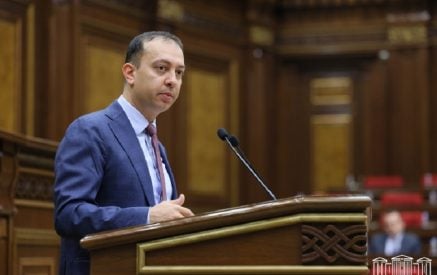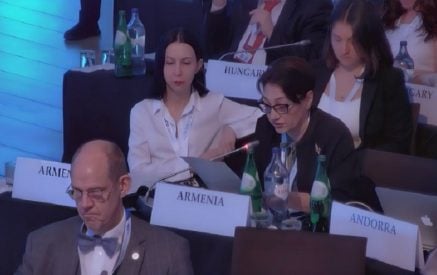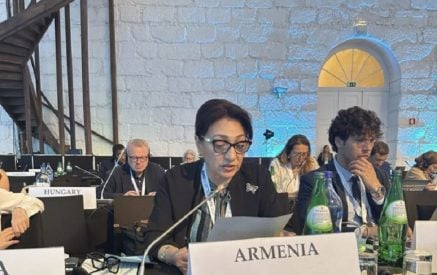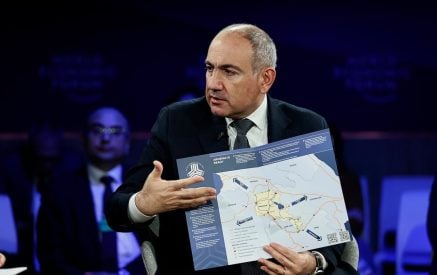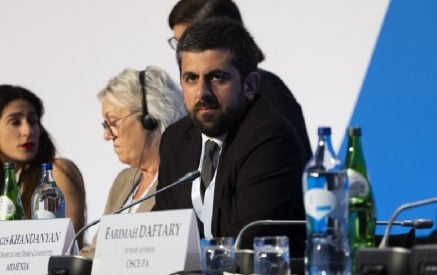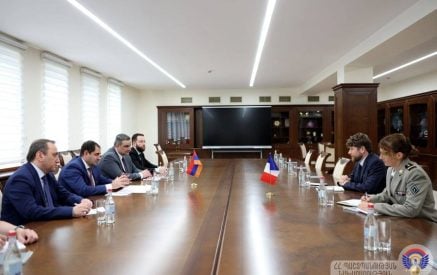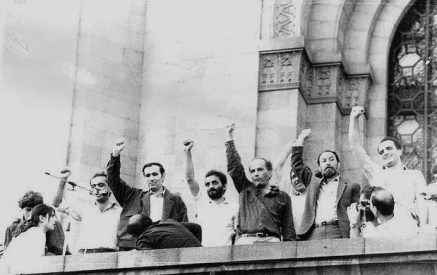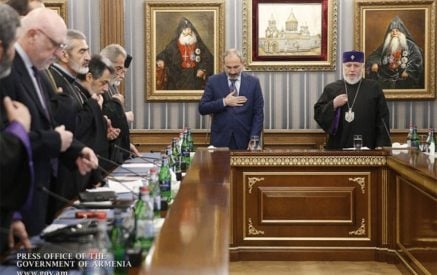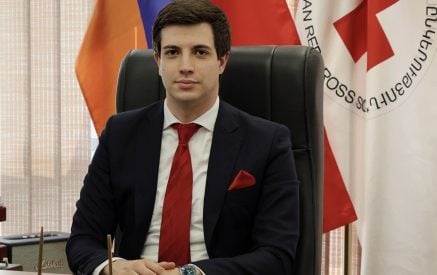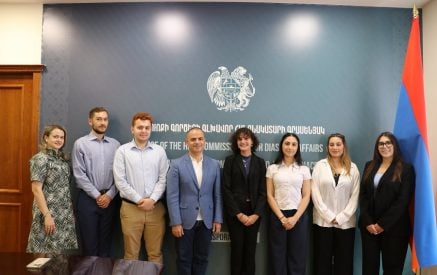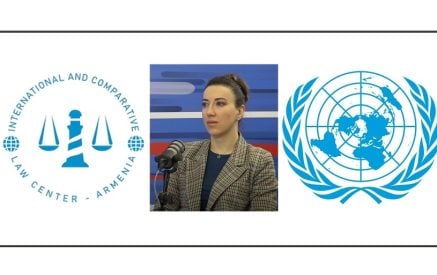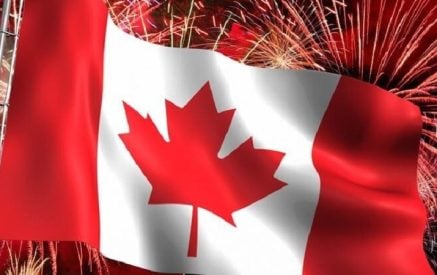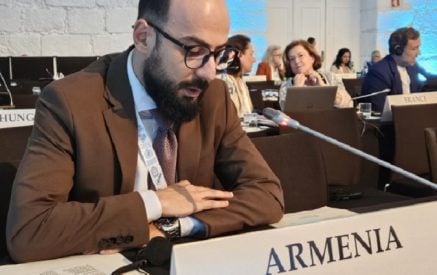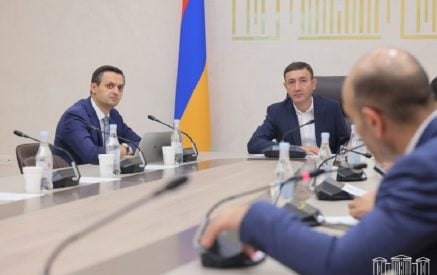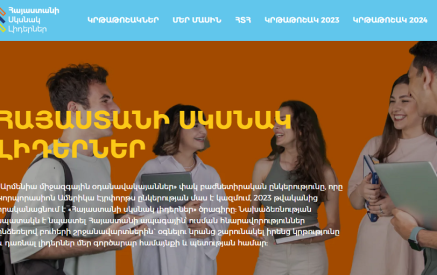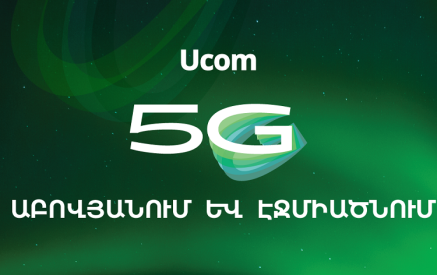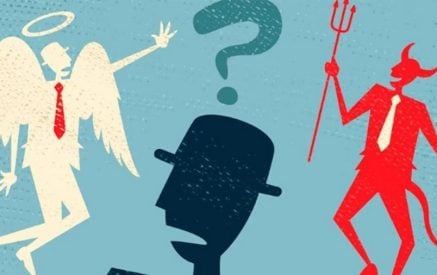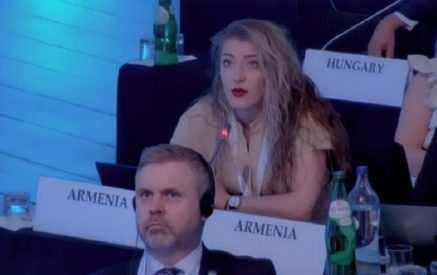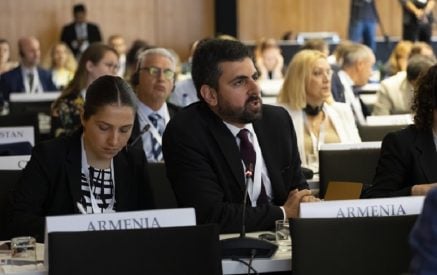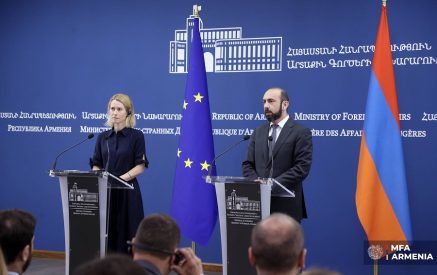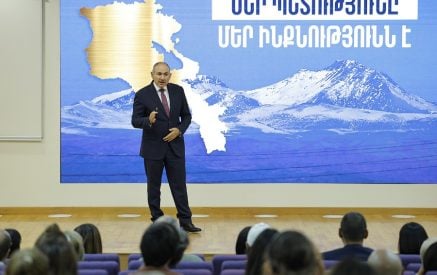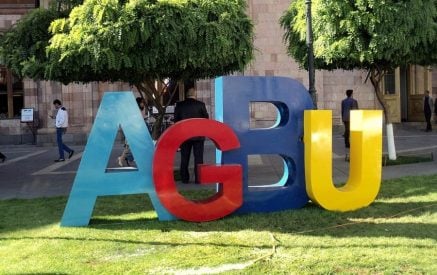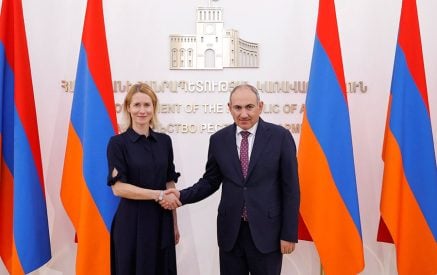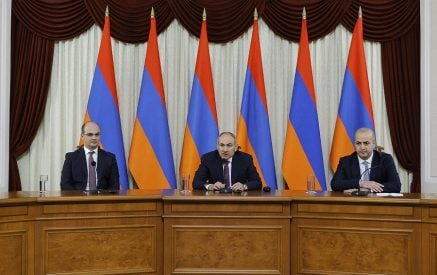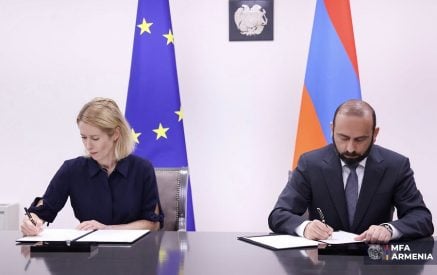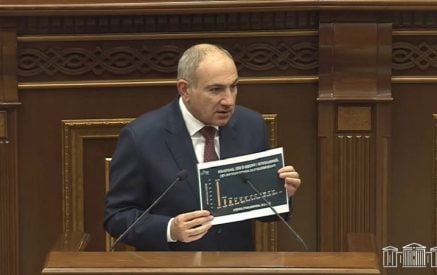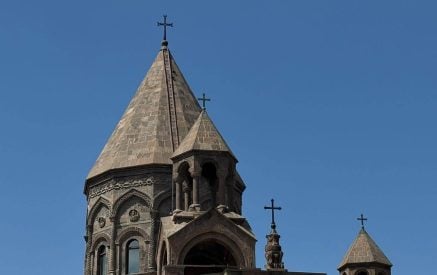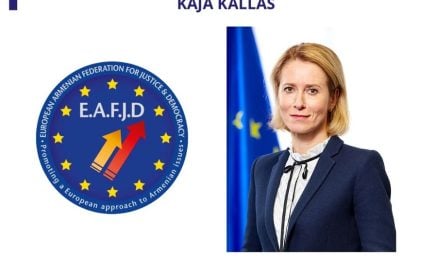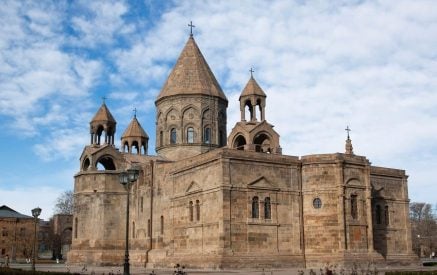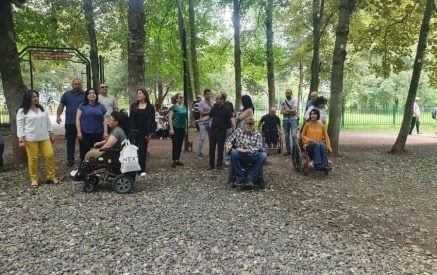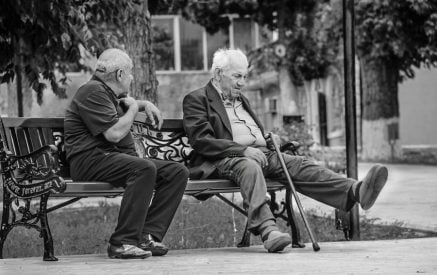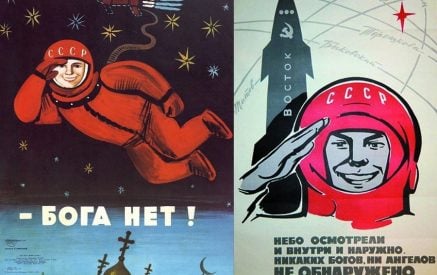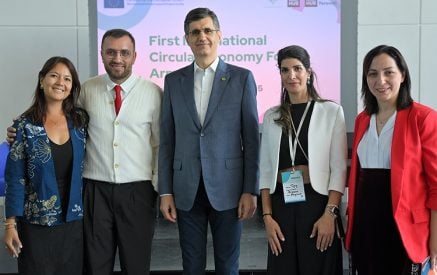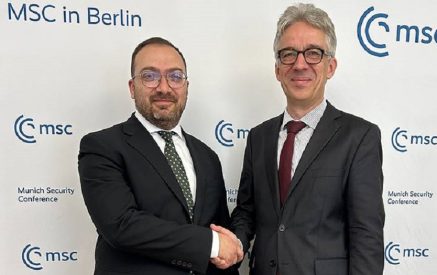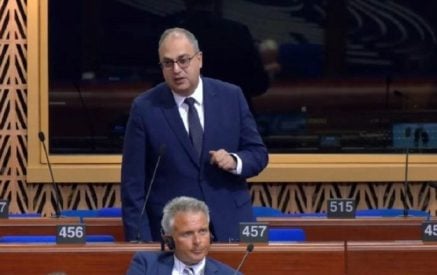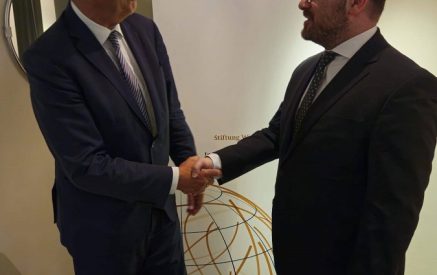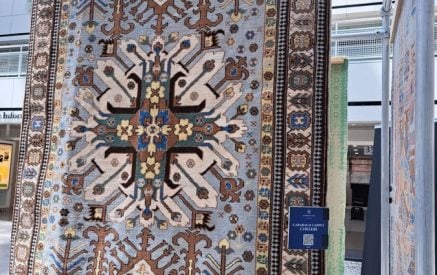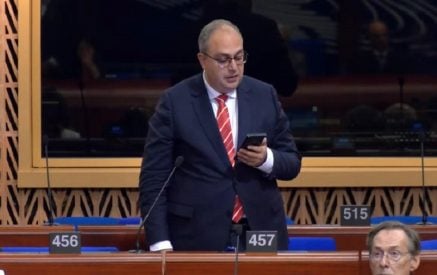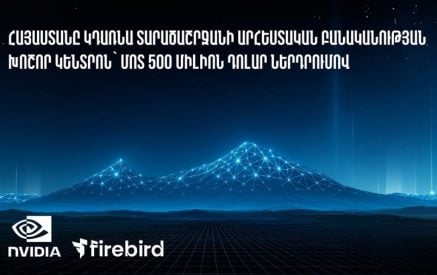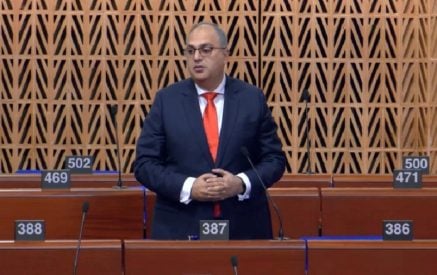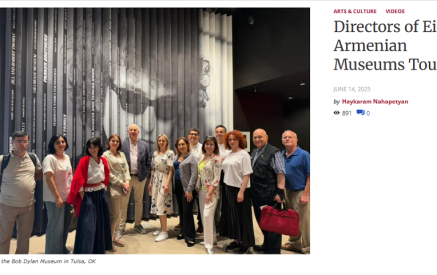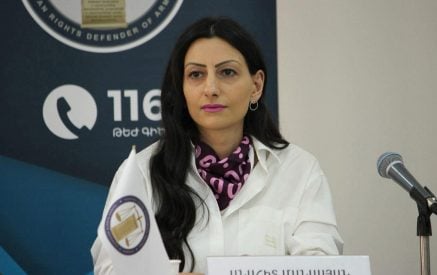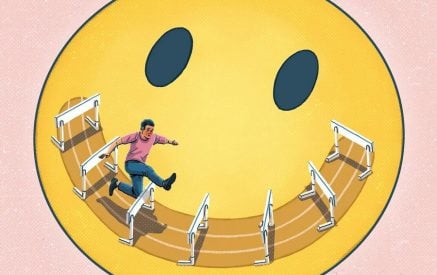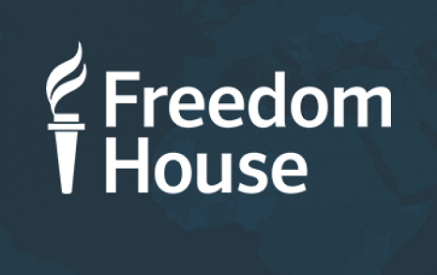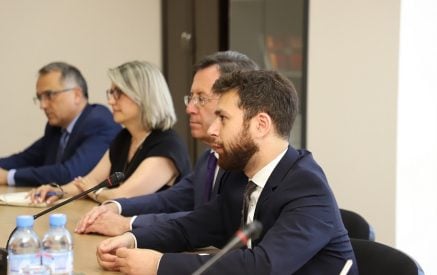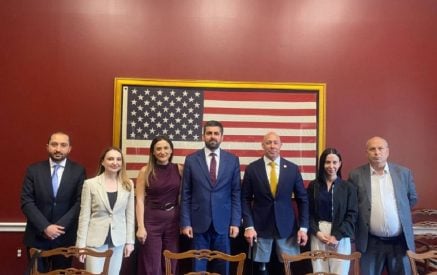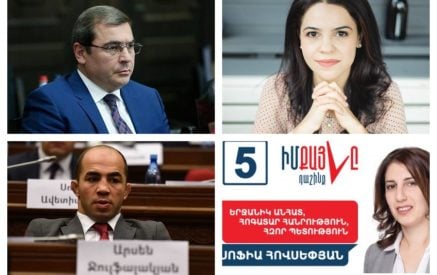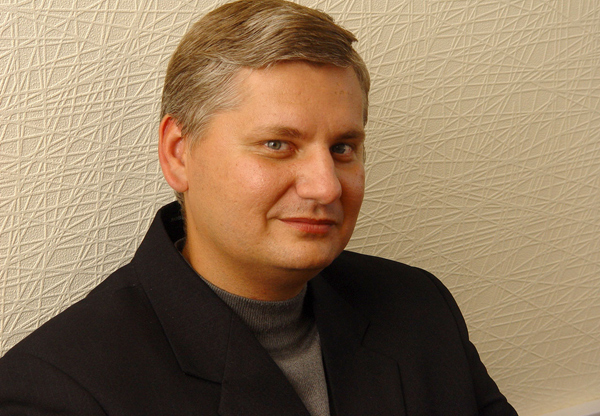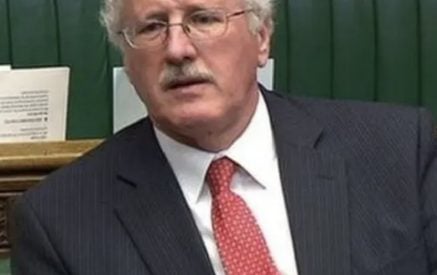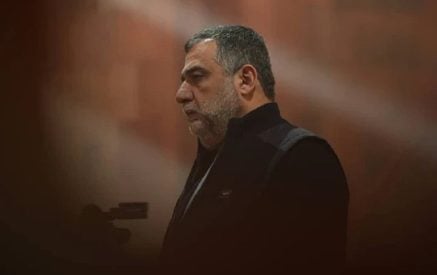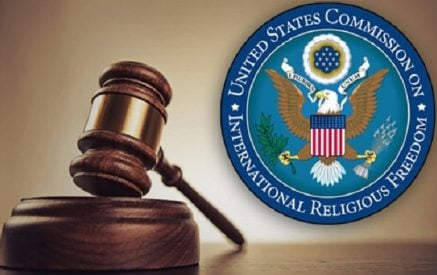According to Sergey Markedonov, Sevastopol is the same for Russians as almost Stepanakert for Armenians
– On Sunday, a day after the referendum held in Crimea, the Crimean parliament adopted the Declaration of Independence and officially submitted an application on unification to the Russian Federation. Later, Vladimir Putin signed a decree on recognizing Crimea as an independent state. Mr. Markedonov what happened in the Crimea, more precisely, around it, and why?
– The Crimean problem has several layers. First is the territorial layer. Crimea is a problem in the composition of Ukraine. The point is that the residence of Crimea was quite different from Abkhazia, South Ossetia, and Nagorno-Karabakh, because there was no conflict here, the autonomy here was not considered null and void, like, for instances, Azerbaijan treated with Karabakh, or Georgia with South Ossetia. There has not been and I hope there will not be any military action. However, rather complicated relationship of balances were built between Crimea and other parts of Ukraine, and when the risks of this balance popped up between different regions of Ukraine, as a result of the Kiev’s Maidan revolution, it inflamed pro-Russian sentiments in Crimea, which were maintained, and did not disappear after the collapse of the USSR. In early 90s, these sentiments were more pronounced, and since they are not supported by the Russian authorities, they were reduced to some extent. The outbreak was enough by the appearance of revolutionary authorities in Ukraine, which instigated the future events. The second level of the matter is the Russian-Ukrainian relations. These relations were very problematic, they passed through great experiences, however, the parties still signed a Great Treaty in 1998, which recognized the borders of Ukraine, including Crimea, there had been numerous public speeches, even by Putin, when the population of Sevastopol addressed him, and he responded, “it is Ukraine, isn’t it” And it is another state…” Moreover, even during the times of President Yushchenko, after the war on August, 2008, Russia and Ukraine were highlighting the Great Treaty of 1998. The Great Treaty, in the event when Yushchenko was problematic president for Moscow. What happened now between Russia and Ukraine, was an experience, but it happened because the government in Kiev changed in a revolutionary way, and the government balance within Ukraine collapsed, which made Moscow will react otherwise. The third layer is the relations between Russia and the West. In my opinion, over more than 20 years, when the “cold war” is over, the West was guided by this scheme: we are expanding where we want, for whatever purpose and when we want, while you in Moscow have to be satisfied with our statements that NATO is a peaceful union and the European integration is exceptionally positive. However, it is clear that NATO and the European integrations, without Russian benefit, are reducing Russian interests. Moscow was retreating for a long time, the first major manifestation that it is not going to act so, was expressed in 2008, however, even after 2008, Moscow sought to reach an agreement with the West. You’ll remember, when Medvedev recommended the European Security Treaty, in other words, in many cases, it was sounded from Moscow, “we do not agree, but we want to dialogue.” I think the West did not listen to these calls. The developments in Crimea and Ukrainian are psychologically and emotionally important for every Russian, now, it is observed that Vladimir Putin is seeking to show that he is not ready to play with the rules of the game set out after the “cold war”, that Russia has its own weight. It’s another matter how he can have this weight and protect it, however, the application is submitted. In other words, we do not want to play with the rules, which are dictated by Washington and Brussels, we are open for discussions, but not for such discussion of saying long live the democracy that should come and teach us, rather than a peer-to-peer dialogue. In my opinion, after the collapse of the Soviet Union, Russia has asked only two things from the West. First, the post-Soviet territory is very for special for the interests of Russia, and it is not ready for retreat and compromise on this issue. Secondly, talk to us like to China. There are also human rights violations in China, a lot of domestic problems, however, the West does not trumpeter these problems, they continue trading with China, and pragmatic relationship. Moscow was also suggesting it, “forget our domestic policy, leave it to us, contact with us, like you contact with China, peer-to-peer, and everything will be fine. Unfortunately, such an approach was not displayed. Moscow has always been nervous that the western “teachers” demanded too much of Moscow in relation to democracy examinations, whereas similar high benchmark of demands was not imposed over other partners, such as Pakistan, China, and Saudi Arabia. I think that the Crimean process aggravated the situation in the three levels listed. It was, of course, not only conditioned by the situation around Crimea and Ukraine rather than by the international residence, because the Yalta and Potsdam system of international relations has died and the new one was not created. A situation created, in which the U.S. ranks the primary position, but this system is not favorable to everyone, including Europe. Many Europeans, of course, do not openly say about it, however, I assure you that in my contacts with many experts from Turkey, Greece, Bulgaria, an even Germany, there are a lot of discontents about prevailing position of the U.S., that the absolute monopolies are harmful to domestic so as to foreign policy.
– Official Kiev, as well as the West, the OSCE and other international organizations qualify Crimean referendum anti-constitutional. There are estimates that Russia has found itself in international isolation, the consequences of which will still be seen. Do you agree with this view? And, in general, what did Russia gain or benefit from this whole process?
Read also
– Of course, it is obvious that Russia has found itself in isolation, however, many countries have appeared in the isolation over the history. For example, let’s view the United States, its activities in Granada, even NATO partners did not support the U.S.. We can also bring other examples. Yes, at this moment, Russia had appeared in isolation. It does not have military and informational resources, it does not have powerful allies, which would support its decisions. In my opinion, we need to realize two things. First, the emotional field when certain hysteria is displayed on the issue of Crimea when we are watching the Russian TV channels, the position of social and political figures. Secondly, the rational kernel. If remove the hysteria aside, and view the rational kernel, we can see that there is a new authorities in Kiev, who are interested in diminishing the Russian impact. It’s obvious. Yanukovych, himself, by the way, was not a pro-Russian leader, the West is now criticizing him, however, still three to four months ago they were licking him and were ready to sign the EU Association Agreement with him. Yanukovych was at least ready to maintain a balance between Russia and the West, let’s call it sitting on two chairs, or another way as you wish, however, he was willing to balance. Whereas his successors were very possible to raise the issue, for example, withdrawal of Russia’s Black Sea fleet in 2017. Could it be beneficial to Moscow…? No, because the Black Sea Fleet and Sevastopol base are extremely important to Russia for the security of its southern borders. How will Putin’s position be inside the country should he agreed to such a possibility? What do you think would the Russians inside the country agree with the president’s policy? I think, no. For instances, if an Armenian leader announces that he is giving Karabakh back, what will be his destiny…? Armenia is also in the isolation, isn’t it? The two out of four borders are closed, and though the international community recognizes the territorial integrity of Azerbaijan, however, the Armenian leaders claim that Karabakh Armenians have the right to self-determination. I am saying this to make it clear that the domestic political decisions are not always enjoying popularity and provide technical advantages. Very often, the feelings are in the first plan. Sevastopol is the same for every Russian like almost Stepanakert for every Armenian, therefore, I would not say that the matter is about the benefit in this case. It would be more accurate to say that Russia may lose a lot, Russia’s policy in this situation is quite constrained, but let’s see how it will end.
There are two ways out of this situation, the first is the expansion of the conflict, when Russia and the West is losing the game. Secondly, when the parties are reaching an extreme point and ask why to continue, maybe it’s worth sitting down and agreeing on the rules of the game. There is also something, however, depending on Russia, the energy supplies to the EU, and so on. We also dependent on the amounts paid from Europe. There are two ways, either we lose the game, or reach a certain formation of geopolitical rules.
– The U.S. published the list of Russian officials, against whom sanctions were imposed in connection with the events in Ukraine and Crimea. A conviction is voiced that Putin’s Russia can be turned into a militaristic state, which goes towards totalitarianism. In your opinion, will the conflict between the West and Russia grow further in this situation, or it will go to relief? And, today we are yet talking about the war. Does Russia want war with Ukraine?
– Much is said about the war… It reminds me of a joke, when an elderly woman is asking her neighbor in Odessa, “What, are you ask?” And the woman says, “Why do you think that I’m sick? And the other is answering, “I saw a doctor coming out of your house in the morning…” The reversal of the other follows, “If a Colonel comes out of your house, should I say that the war has begun… ?” Everybody is talking about the war, however, at this point I do not see any possibility of a military confrontation. I hope that they will be enough wit not to enter into military actions. Russian authorities are well aware that there are no pro-Russian sentiments in Kiev, as the same situation for Tbilisi when they were saying that MNoscow will attack Tbilisi in 2008. Russia realized that it has support in Abkhazia and South Ossetia, whereas no support in Tbilisi, as it is now, it realizes now that it has support in the Crimea, but not in Kiev. With regard to the totalitarianism, let’s understand that totalitarianism assumes totalitarian control. Is it available in the RF today…? People are leaving the country free, my wife, for example, is currently in Italy. Is there a private ownership? What? Do we have the Soviet planned economy? No. It’s market economy. What? Is there a CPSU…? “Yedinaya Rossia” is a ruling party, but not necessarily to become a member of it, for instance, I am not affiliated to “Yedinaya Rossia”, I am teaching, and working in a private business. To say that there is totalitarianism in Russia, it will take us away from the basic topic. Yes, there is a hybrid regime in Russia, in which there are elements of democracy and authoritarianism. Yes, the role of the president is too big, more than in Western countries, there is even a cult of personality, but it’s all the same, it is not totalitarianism. In extreme case, it can be said a weak authoritarianism.
– The Foreign Ministry of Nagorno-Karabakh is considering the referendum held in Autonomous Republic of Crimea as the next display of exercising the people’s right to self-determination. After the referendum in Crimea, the Chairperson of Transdniestria Supreme Council sent a letter to the head of the State Duma, Sergei Narishkin, asking to unite Transdniestria to Russia. Mr. Markedonov, we recently are drawing too much parallels between Karabakh and Crimea. Here is the question. Could there be pretensions to Karabakh by Russia?
– Currently, I believe, no. It would happen if the relationship with Azerbaijan were deteriorated dramatically. It is important to note that Russia’s positions in the conflict regulation seem to be reprinted, if Russia did so in South Ossetia, it would do the same in Crimea. It did it six years ago, and it was done for a particular reason, when similar situation was created. I am sure that Moscow would not recognize South Ossetia in 2008, if Saakashvili had not attacked Tskhinvali. If the revolutionary authorities had not come to power in Kiev, Crimea events would not have happened. If Azerbaijan had not attacked Karabakh, Russia would not recognize Karabakh. Well, Russia’s policy is not only the matter of what it is doing rather than how they are treating with RF. They are always forgetting about this. And why does Russia do this or that thing…? Maybe it is also being treated in some way or another. I do not think that Russia will consider Karabakh and Transdniestria from this or that side. Let’s wait and see. It is obvious that there is a difficult situation in Moldova in terms to European integration, there was a referendum, not even in Transdniestria, but in Gagauzia, which is a part of Moldova and has not declared itself as a separate unit.
Emma GABRIELYAN


